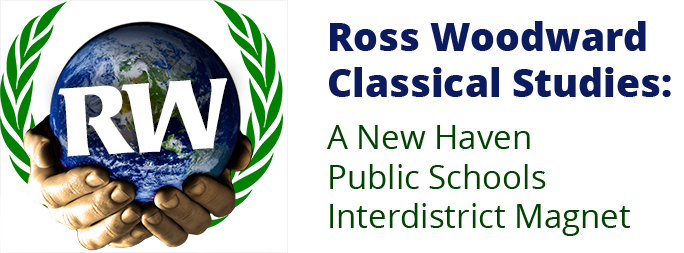Paideia
 We are a Paideia school. Paideia is the Greek word for the proper upbringing of children; it implies a school community that nurtures the ideal of a well-rounded individual. The philosophy and principles of the Paideia program are upheld by The National Paideia Center with whom we have worked in a collaborative partnership.
We are a Paideia school. Paideia is the Greek word for the proper upbringing of children; it implies a school community that nurtures the ideal of a well-rounded individual. The philosophy and principles of the Paideia program are upheld by The National Paideia Center with whom we have worked in a collaborative partnership.
With an emphasis on Socratic questioning in seminar discussion and intellectual coaching that produces skills of learning, our objective is personal growth. At Ross Woodward, process is paramount. We believe that students learn best when they are active thinkers who construct their own knowledge and understandings. Socratic questioning and student dialogue are the central teaching and learning device at Ross Woodward. All teachers use relatively little didactic teaching; instead we use product-oriented coaching for the majority of our instruction. We stress an integrated core curriculum that allows for student choice and opportunity in enrichment areas as they relate to the core academic subjects. Individual growth is consistently stressed and is achieved through formal, informal assessment, varied interventions and enrichments, flexible grouping and scheduling.
THE PAIDEIA PRINCIPLES
• that all children can learn
• that, therefore, they all deserve the same quality of schooling, not just the same quantity;
• that the quality of schooling to which they are entitled is what the wisest parents would wish for their own children, the best education for the best being the best education for all;
• that schooling at its best is preparation for becoming generally educated in the course of a whole lifetime, and that schools should be judged on how well they provide such preparation;
• that the three callings for which schooling should prepare all Americans are, (a) to earn a decent livelihood, (b) to be a good citizen of the nation and the world, and (c) to make a good life for one’s self;
• that the primary cause of genuine learning is the activity of the learner’s own mind, sometimes with the help of a teacher functioning as a secondary and cooperative cause;
• that the three types of teaching that should occur in our schools are didactic teaching of subject matter, coaching that produces the skills of learning, and Socratic questioning in seminar discussion;
• that the results of these three types of teaching should be (a) the acquisition of organized knowledge, (b) the formation of habits of skill in the use of language and mathematics, and (c) the growth of the mind’s understanding of basic ideas and issues;
• that each student’s achievement of these results would be evaluated in terms of that student’s competencies and not solely related to the achievements of other students;
• that the principal of the school should never be a mere administrator, but always a leading teacher who should be cooperatively engaged with the school’s teaching staff in planning, reforming, and reorganizing the school as an educational community;
• that the principal and faculty of a school should themselves be actively engaged in learning;
• that the desire to continue their own learning should be the prime motivation of those who dedicate their lives to the profession of teaching.





